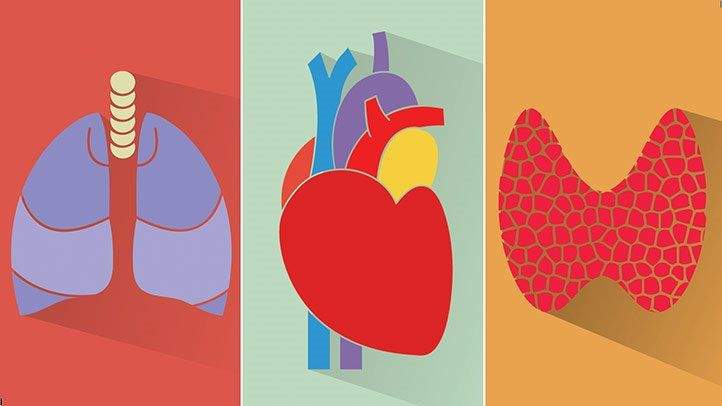Chronic Obstructive Pulmonary Disease (COPD) is a prevalent and progressive respiratory condition that affects millions worldwide. Characterized by airflow limitation and respiratory symptoms such as coughing, wheezing, and shortness of breath, COPD primarily results from chronic exposure to irritants like cigarette smoke. While its impact on the lungs is well-documented, emerging research suggests that COPD may also exert significant effects on cardiovascular health, potentially leading to complications such as heart arrhythmias.
Understanding COPD And Its Mechanisms
COPD encompasses two main conditions: chronic bronchitis and emphysema. In chronic bronchitis, there is inflammation and narrowing of the airways, leading to excessive mucus production. Emphysema involves damage to the lung tissue, particularly the alveoli, impairing gas exchange. Both conditions contribute to the hallmark symptoms of COPD, including persistent cough, sputum production, and airflow limitation.
The primary risk factor for COPD is cigarette smoking, although long-term exposure to other lung irritants such as air pollution, chemical fumes, and dust can also contribute. Genetics may predispose some individuals to developing COPD, particularly alpha-1 antitrypsin deficiency, an inherited disorder.
SEE ALSO: What Happens If Arrhythmia Is Left Untreated?
Linking COPD And Cardiovascular Disease
Beyond its respiratory impact, COPD is increasingly recognized as a systemic disease affecting multiple organs, including the cardiovascular system. Cardiovascular disease (CVD) is a leading cause of morbidity and mortality in COPD patients, with manifestations ranging from coronary artery disease (CAD) to heart failure and arrhythmias.
Impact of COPD on Heart Rhythm
Arrhythmias, abnormal heart rhythms, are disturbances in the electrical activity of the heart that can lead to irregular heartbeats. Common types include atrial fibrillation (AF), atrial flutter, and ventricular arrhythmias. Emerging evidence suggests that COPD contributes to an increased risk of arrhythmias through several interconnected mechanisms:
Hypoxia and Hypercapnia: COPD often leads to hypoxia (low oxygen levels) and hypercapnia (high carbon dioxide levels) due to impaired gas exchange in the lungs. These conditions can directly affect the electrical activity of the heart, promoting arrhythmias.
Inflammation and Oxidative Stress: Chronic inflammation is a hallmark of COPD and contributes to systemic inflammation. Inflammation and oxidative stress can promote structural and electrical remodeling of the heart, predisposing to arrhythmias.
Autonomic Nervous System Dysfunction: COPD disrupts the balance of the autonomic nervous system, with increased sympathetic activity and decreased parasympathetic tone. This imbalance can influence cardiac electrophysiology and increase the risk of arrhythmias.
Medication Effects: Some medications used in the management of COPD, such as beta-agonists and methylxanthines, can have direct effects on cardiac conduction and rhythm, potentially increasing the likelihood of arrhythmias.
Clinical Evidence And Epidemiological Studies
Numerous epidemiological studies have explored the relationship between COPD and arrhythmias:
A meta-analysis published in Chest in 2015 analyzed data from 12 studies and found that COPD was associated with a significantly increased risk of atrial fibrillation.
The Rotterdam Study, a large prospective cohort study, demonstrated a higher incidence of atrial fibrillation in individuals with impaired lung function, even after adjusting for cardiovascular risk factors.
Research from the COPDGene cohort highlighted that COPD severity, as assessed by spirometry, correlated with an increased prevalence of ventricular arrhythmias.
These studies collectively underscore the association between COPD and arrhythmias, suggesting that respiratory impairment may serve as an independent risk factor for cardiac rhythm disturbances.
Mechanistic Insights And Pathophysiological Pathways
To understand how COPD contributes to arrhythmogenesis, researchers have delved into various pathophysiological pathways:
Pulmonary-Hypoxic Pathway: Chronic hypoxia in COPD triggers a cascade of events leading to pulmonary vasoconstriction, pulmonary hypertension, and right heart strain. These changes can ultimately impact left ventricular function and predispose to arrhythmias.
Inflammatory Cascades: Systemic inflammation in COPD promotes endothelial dysfunction, fibrosis, and myocardial remodeling, all of which can disrupt normal cardiac electrophysiology.
Autonomic Imbalance: Dysregulation of the autonomic nervous system alters heart rate variability and QT interval dynamics, contributing to arrhythmogenesis.
Clinical Implications And Management Strategies
Given the bidirectional relationship between COPD and arrhythmias, clinical management should adopt a holistic approach:
Early Detection: Routine cardiac monitoring and screening for arrhythmias in COPD patients, particularly those with severe disease or exacerbations, can facilitate early intervention and management.
Optimized COPD Therapy: Tailoring COPD treatment to minimize exacerbations and optimize lung function can indirectly reduce the risk of arrhythmias. This includes smoking cessation, pulmonary rehabilitation, and pharmacotherapy (e.g., bronchodilators, corticosteroids).
Cardiovascular Risk Modification: Addressing traditional cardiovascular risk factors such as hypertension, diabetes, and dyslipidemia is crucial in COPD patients to mitigate the overall cardiovascular burden.
Multidisciplinary Care: Collaboration between pulmonologists, cardiologists, and primary care providers ensures comprehensive care for COPD patients, integrating both respiratory and cardiovascular management.
Future Directions in Research
Future research endeavors aim to elucidate specific molecular pathways linking COPD to arrhythmias and identify novel therapeutic targets:
Biomarkers: Biomarker discovery may aid in stratifying COPD patients at highest risk of developing arrhythmias, facilitating targeted surveillance and early intervention.
Precision Medicine Approaches: Tailoring treatment strategies based on individual patient phenotypes, including genetic predisposition and disease severity, holds promise in optimizing outcomes and reducing cardiovascular morbidity.
Interventional Studies: Prospective trials evaluating the impact of aggressive COPD management on arrhythmia incidence are essential to establish causality and inform evidence-based practice guidelines.
Conclusion
In conclusion, while COPD primarily affects respiratory function, its systemic implications extend to cardiovascular health, predisposing individuals to a spectrum of cardiovascular diseases, including arrhythmias. The interplay between chronic inflammation, oxidative stress, autonomic dysfunction, and medication effects contributes to the pathophysiology of arrhythmias in COPD patients. Clinicians should maintain a high index of suspicion for arrhythmias in COPD patients and adopt a multidisciplinary approach to optimize management and improve clinical outcomes. Continued research efforts are imperative to further unravel the complex relationship between COPD and arrhythmias, paving the way for targeted therapeutic interventions and personalized medicine approaches in this vulnerable patient population.

